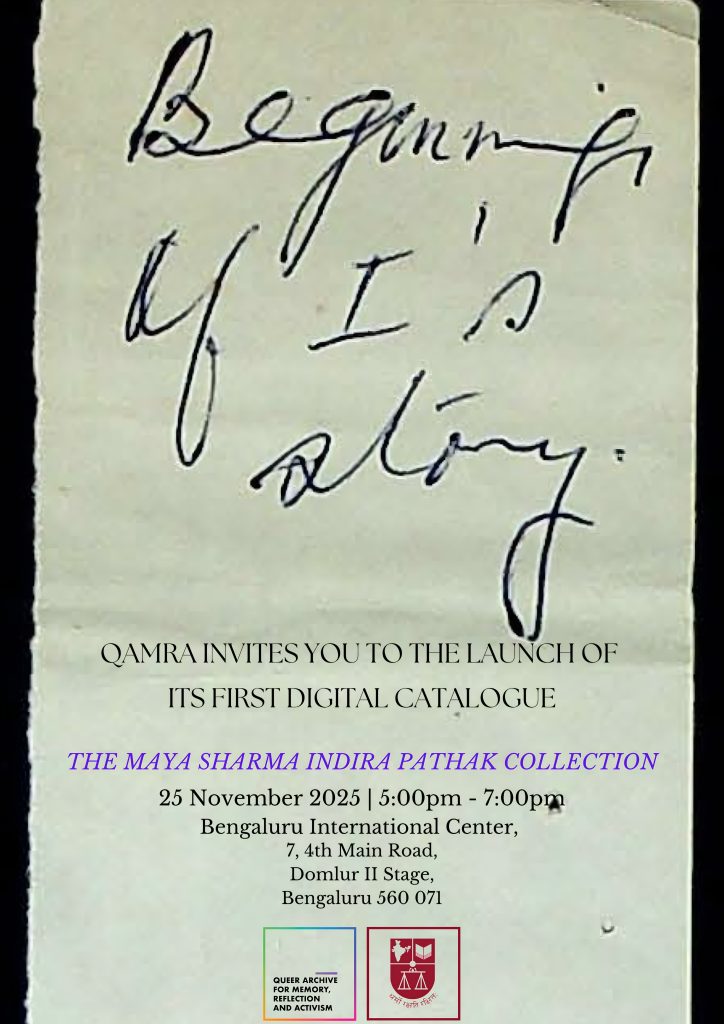Launch of the Maya Sharma–Indira Pathak (MSIP) Collection Online Catalogue | By Queer Archive for Memory Reflection and Activism, NLSIU
Bangalore International Centre
Tuesday, November 25, 2025, 5:00 pm
Open to the public.
NLSIU’s Queer Archive for Memory Reflection and Activism (QAMRA) is launching the Maya Sharma–Indira Pathak (MSIP) Collection Online Catalogue, featuring a talk by Maya Sharma, on November 25, 2025, 5 to 7 PM at the Bangalore International Centre (BIC).
RSVP HereAbout the Collection
Maya Sharma and Indira Pathak are feminist, queer, grassroots activists based in Vadodara, Gujarat. Maya Sharma is a journalist and worked with trade unions and the autonomous women’s movement before entering the queer movement. She is the author of the seminal book “Loving Women: Being Lesbian in Unprivileged India” and the more recent “Footprints of a Queer History: Life-Stories from Gujarat”. Indira Pathak previously worked with labour unions, the Mahila Samakhya programme and Nari Adalats in rural Gujarat before founding Vikalp Women’s Group. Their collection, built from their personal and organisational archives, documents the lives, struggles and everyday worlds of lesbians and trans men in Gujarat. It includes personal correspondence, photographs, crisis and legal case files, newsletters, ephemera, and organisational records that document decades of grassroots queer and feminist work. This collection forms an important part of Indian queer history, and QAMRA is honored to be able to steward it.
This catalogue is QAMRA’s first searchable online catalogue. It marks the beginning of our efforts to make our archive more widely accessible online.
At this event, we will introduce the MSIP collection, talk about how it has been put together, and demonstrate how this new online catalogue can be used for research, teaching, and community work. We will also reflect on questions of access, privacy, and care in queer archival practice, in conversation with Maya Sharma about the histories, relationships, and movements reflected in the archive.


